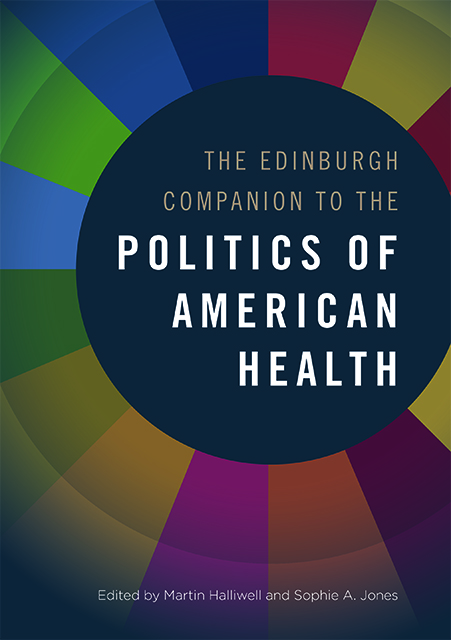Book contents
- Frontmatter
- List of Contents
- Notes on Contributors
- Introduction: The Political Landscapes of American Health, 1945–2020
- I Geography, Community and American Health
- II Critical Health Conditions: Debates and Histories
- III The Politics of Children's Health
- IV The Institutional Matrix of Health Care
- V The White House, Congress and Health Reform
- VI Justice, Ethics and American Health
- VII Public Health and Global Health
- General Bibliography
- Index
20 - The National Institutes of Health: Courting Congress, Creating a Research Infrastructure
Published online by Cambridge University Press: 12 August 2023
- Frontmatter
- List of Contents
- Notes on Contributors
- Introduction: The Political Landscapes of American Health, 1945–2020
- I Geography, Community and American Health
- II Critical Health Conditions: Debates and Histories
- III The Politics of Children's Health
- IV The Institutional Matrix of Health Care
- V The White House, Congress and Health Reform
- VI Justice, Ethics and American Health
- VII Public Health and Global Health
- General Bibliography
- Index
Summary
The US Congress has long been enamoured of the National Institutes of Health (NIH). From all sides of the House and Senate, in hard economic times and good, the fondness for the federal government's major biomedical research agency has been a constant. It is true that devotion has fluctuated at times, tested by the rival suitors of spending cuts and deficit reduction. However, the NIH has survived these challenges, and its marriage to Congress has endured though the contract has changed. Where once the marriage contract sought to distance NIH science from short-term political requirements, a new contract emerged demanding more attention to current political necessities, most recently exemplified by the Covid-19 pandemic.
The roots of this marriage go back to the 1940s, when – in the twenty-five years following World War II – the US built the largest biomedical research enterprise in the world, with the government-funded NIH as its flagship. The NIH argued that unlike wartime biomedical programs such as the development of antibiotics (including penicillin), DDT, improved malarials or plasma fractionation products, future research would generally only benefit the patient after years of basic research had laid the groundwork for new approaches to disease. What this meant was that NIH research should not be driven by short-term demands for cures. It should be free to undertake the long-term fundamental research it deemed necessary for biomedical progress, which alongside clinical research would be evaluated through what was at the time a novel process: peer review by other scientists, free from immediate government control. Within this framework the NIH played a key part in establishing the postwar infrastructure of biomedical research.
This chapter explores the origins of this contract between the NIH and Congress, and how since the 1970s the relationship was challenged by concerns about unethical biomedical practices, new technologies such as recombinant DNA (and later cloning, stem cells and human genetics), the pace and direction of research, the lack of public accountability, the growing role of pharmaceutical and biotech companies in research, and the ever-escalating costs of long-term biomedical research. These led to periodic efforts within Congress to cut funding, prompting recurrent warnings of delayed cures for deadly diseases, stymied scientific careers and the rise of rivals in Europe, Japan and most recently China. Yet NIH funding generally continued to grow, buttressed by supporters in Congress, powerful disease lobbies, and research institutions dependent on federal funding.
- Type
- Chapter
- Information
- The Edinburgh Companion to the Politics of American Health , pp. 338 - 356Publisher: Edinburgh University PressPrint publication year: 2022



